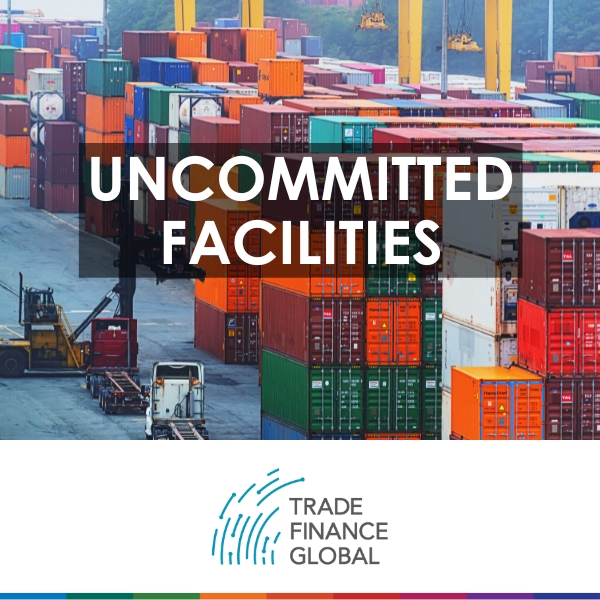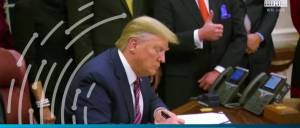Uncommitted Facility | Uncommitted Trade Finance


Access trade, receivables and supply chain finance
We assist companies to access trade and receivables finance through our relationships with 270+ banks, funds and alternative finance houses.
Get startedContents
Uncommitted facilities can help make short term funding available to a business or borrow, without the need to set up clear terms or the ability to the extend the loan. A borrower can benefit from an uncommitted facility or uncommitted credit line to meet seasonal revenue fluctuations or short term payment obligations (e.g. an overdraft facility). In trade finance, uncommitted trade finance facilities can help overcome short-term payment requirements, such as purchasing bulk commodities when prices might suddenly drop and a trade discount can be earned for purchasing larger volumes.
What are Uncommitted Facilities?
Many banks and funds; especially those within the commodities sphere speak about uncommitted trade finance facilities. The word is quite frequently used when talking about short-term commodity trade transactions and facilities that traders have access to. It is important to note that a business may have many facilities available to it at any one time as they are uncommitted in nature and so cannot always be relied upon.
A live example of this is a soya bean focused desk at a larger commodities trader. The desk may have various uncommitted trade finance facilities and decide to utilise those facilities for different aspects of their trade, which may be specified under their agreement with the bank and deemed appropriate by the funder. Alternatively, they may get resistance from some funders or have a good relationship with others in relation to specific transaction cycles.
The uncommitted nature of the facility means that a funder is not committed to lend. There will usually be ‘sub-limits’ in each document, which specifies maximums that a company is available to borrow for specific trade types. However, even if the criteria are fulfilled, a bank is still not committed to lend when there is a request from a borrower.
Security on commodity related uncommitted trade finance facilities vary. However, there is usually the ability of the funder to step into the borrowers shoes and execute the transaction if needed. This allows the lender to have comfort in the execution of the trade.
In conclusion, the lender agrees to make short-term funding available to the borrower; this can be contrasted to a committed facility where the arrangement of finance is clearly set out by the lending company and there are stricter criteria that the borrower has to abide by.
An uncommitted facility is used in order to finance the short-term needs of a business. The reasons for this may be due to cash flow fluctuations, short-term trades, seasonality, pay roll differences throughout the year or a number of other issues. Uncommitted facilities are usually cheaper to arrange, as the credit risk is lower due to the shorter term nature of the trade and the lender will not have commit the capital so will feel more comfortable. They are also less likely to have many specific terms and conditions. These facilities are mostly used for temporary purposes; some lenders do not provide them as there will be little or no fees received if they are not utilised.
Types of uncommitted credit facilities
- Overdrafts
- Foreign exchange options, such as forwards and options
- Commodity derivatives and futures markets
- Standby Letters of Credit
- Bank Guarantees
Trade Finance Global works with many lenders, alternative funders and retail banks to help SMEs and business access various forms of finance to overcome short and longer term financing needs. Get in touch with the team to find out how we can help you.






















